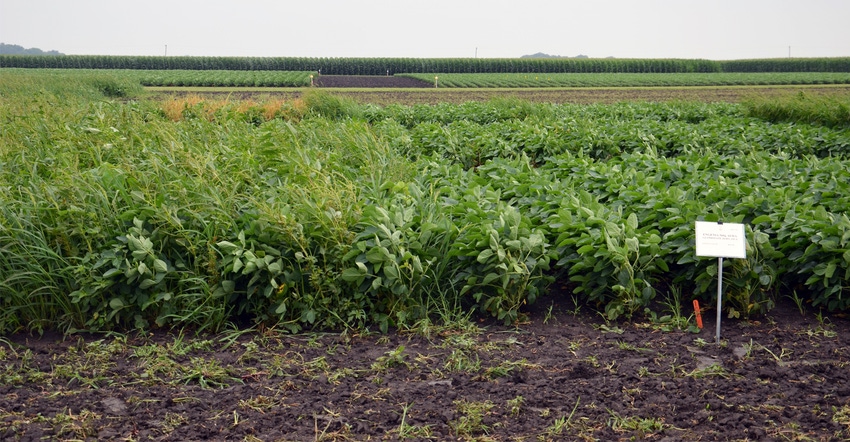
If you’re wondering how long it will take before someone contacts the Office of Indiana State Chemist to ask if they can apply older, existing dicamba products in front of or over dicamba-tolerant soybeans, you’re too late. It’s already happened. Dave Scott has received such a call. The answer, of course, is, "No!"
“The Indiana Pesticide Review Board has been discussing issues related to dicamba- and 2,4-D-tolerant crops since 2007, when companies first talked about introducing this technology,” says Scott, pesticide administrator for OISC. “We realize that there are potential benefits from this technology, but we also recognize that there are serious concerns about off-target movement and damage from these highly active herbicides to sensitive crops.”
What happened in Southern states in 2016 heightened awareness of worst-case scenarios. Dicamba-resistant soybeans could be planted legally in 2016, but the new herbicide products weren’t approved or available. Instead, some growers applied older chemistries containing dicamba. The result was widespread off-target crop injury. In some cases, it even led to violence.
In Missouri alone, according to preliminary reports, regulators investigated 220 complaints, involving 62 private applicators and over 41,000 acres of various crops, including sensitive soybeans and residential plantings.
“We’re doing what we can to avoid that type of situation from occurring here,” Scott says. “The new registered dicamba products are less volatile, but we don’t have experience with them yet. We’re asking everyone to follow labels carefully when using these new products.”
OISC’s views
To clear up confusion about where registration and rule-making related to these products stand in Indiana as of now, Scott offers these observations:
• Dicamba-tolerant soybean seeds are on their way to farms. Seeds don’t require approval by OISC for distribution and planting in Indiana.
• The Indiana Pesticide Review Board proposed a rule to classify dicamba products as "restricted use." All products containing at least 6.5% dicamba would become restricted-use pesticides (RUPs) in Indiana.
The rule would restrict purchase and use to certified applicators; restrict sale and distribution to registered RUP dealers; require users to keep application records for two years; and require dealers to keep sales records for two years.
“This would really help us track how much product was out there and where it was used,” Scott says.
• No dicamba-containing products will become RUPs in Indiana until the rule is final. The rule-making process takes six to 12 months, Scott says. Currently, it’s stalled by procedural matters. The bottom line is that dicamba-containing products won’t be restricted use for the 2017 season.
• Only two dicamba products are registered for use on dicamba-tolerant soybeans by U.S. EPA and OISC. These two products are XtendiMax with VaporGrip Technology and Engenia.
• Directions for use and restrictions on labels are considerable. OISC urges anyone who will apply these products to seek focused training, Scott says.
• Check up-to-date labels or websites for information on tankmixes and adjuvants. When the products were registered, no tankmixes were approved. Consult websites provided by the manufacturers to see if tankmixes or adjuvants have been added.
• There are fines for misusing products and not following label directions. OISC personnel will follow up on all incident complaints, and will also spot-check for proper application. "The highest fines we can levy are minimal,” Scott acknowledges. “The real risk is the liability that goes along with not following the label.”
About the Author(s)
You May Also Like




